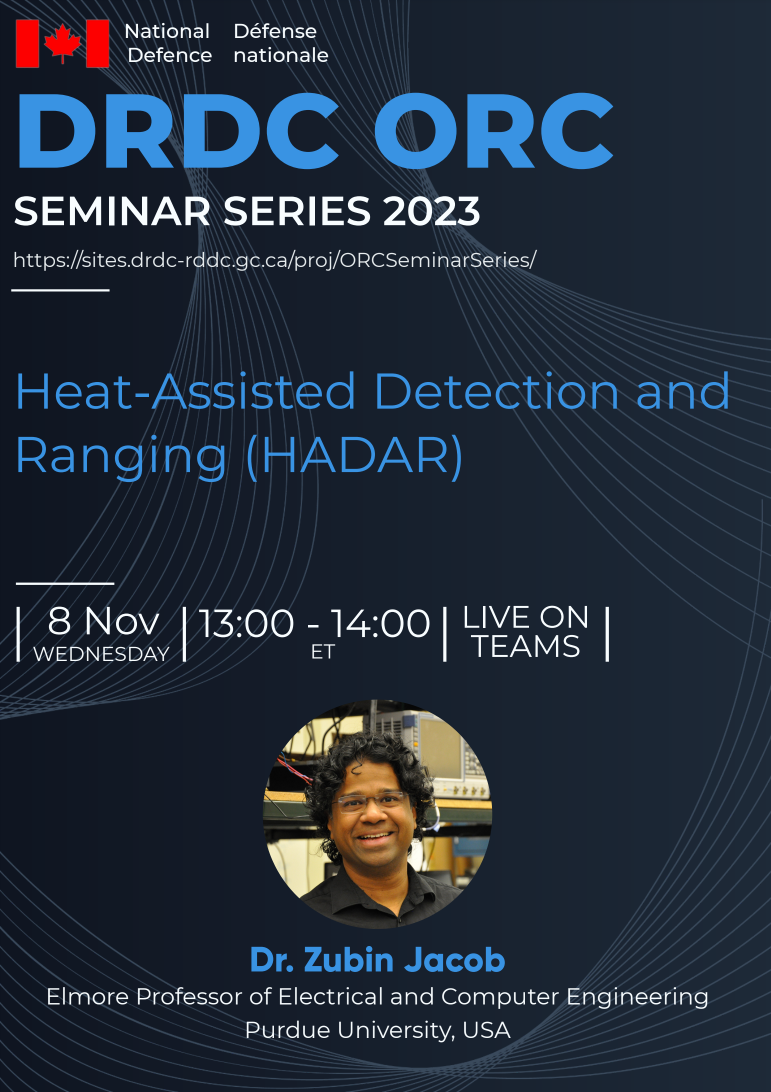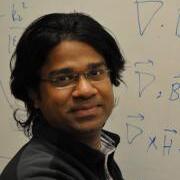Dr. Zubin Jacob Presented "Heat-Assisted Detection and Ranging (HADAR)" in the ORC Seminar Series 2023. He spoke about how machine perception uses advanced sensors to collect information about the surrounding scene for situational awareness. State-of-the-art machine perception using active sonar, radar, and LiDAR to enhance camera vision faces difficulties when the number of intelligent agents scales up. Exploiting omnipresent heat signals could be a new frontier for scalable perception. However, objects and their environment constantly emit and scatter thermal radiation, leading to textureless images famously known as the ‘ghosting effect’.
Thermal vision thus has no specificity limited by information loss, whereas thermal ranging—crucial for navigation—has been elusive even when combined with artificial intelligence (AI). Here we propose and experimentally demonstrate heat-assisted detection and ranging (HADAR) overcoming this open challenge of ghosting and benchmark it against AI-enhanced thermal sensing.
HADAR not only sees texture and depth through the darkness as if it were day but also perceives decluttered physical attributes beyond RGB or thermal vision, paving the way to fully passive and physics-aware machine perception. We develop HADAR estimation theory and address its photonic shot-noise limits depicting information-theoretic bounds to HADAR-based AI performance. HADAR ranging at night beats thermal ranging and shows an accuracy comparable with RGB stereovision in daylight. Our automated HADAR thermography reaches the Cramér–Rao bound on temperature accuracy, beating existing thermography techniques.
Our work leads to a disruptive technology that can accelerate the Fourth Industrial Revolution (Industry 4.0) with HADAR-based autonomous navigation and human–robot social interactions.

